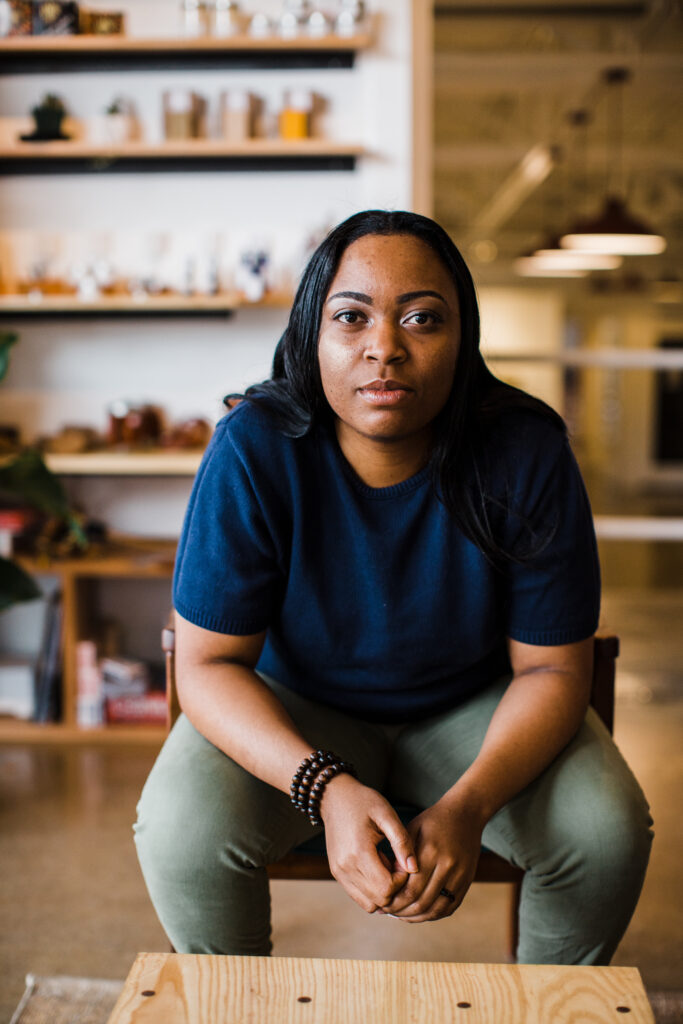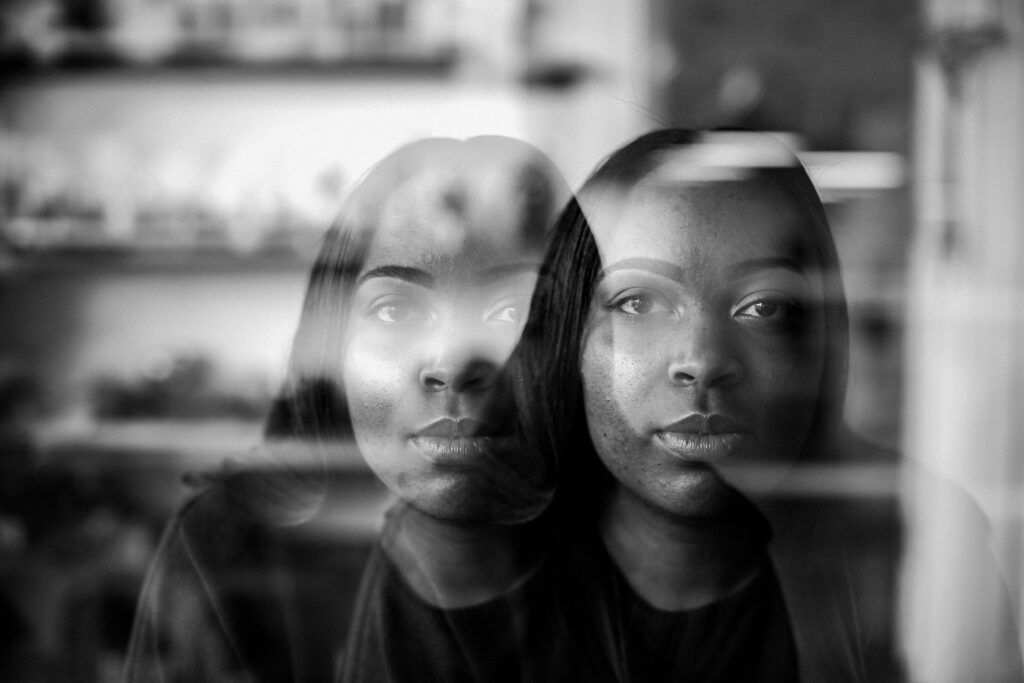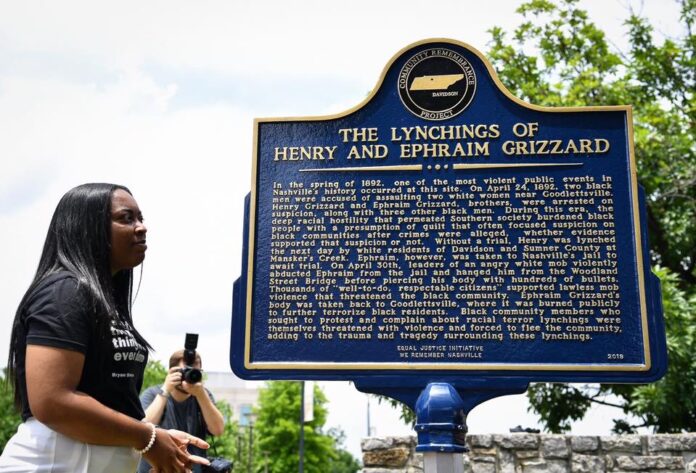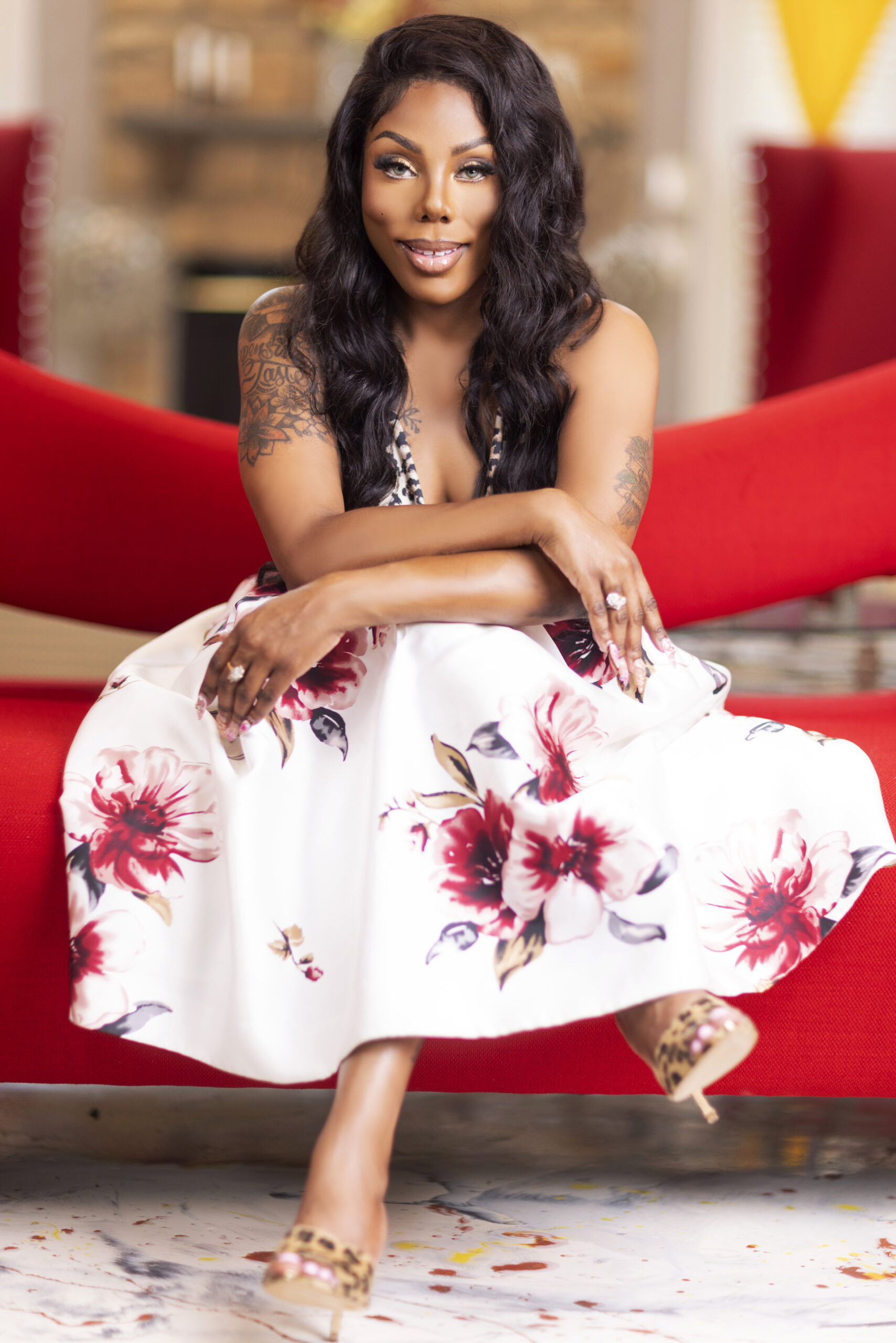( ENSPIRE She Did That ) Paschall Discusses We Remember Nashville To Highlight Black Resilience In America
ENSPIRE Contributor: Amitha Bhat/Taylor Groft
Brittany T. Paschall is an educator, minister, and works with organizing and aligning social justice and education. Paschall is the founder of We Remember Nashville, an organizing effort that aims to address the historical terror of lynching in Davidson County. She is a lifelong activist and freedom worker. Paschall started her activists’ work with Oasis Center in Nashville where she serves as a programs specialist, associate camp director, and strategist. During this time, she was appointed as a member of the Mayor’s Youth Council and the Building Bridges Youth Advisory Council.
In 2017, Paschall was awarded the National ELLA Fellow with the Sadie Nash Leadership Projects. Her fellowship project, Nashville’s Daughters, engaged young women of color by exploring mentoring, historical exploration, social-emotional learning, and social action. She is also the TTA Humanitarian Community Service Award recipient for the Status of Women.

Paschall is also a graduate of Grand Canyon University, where she studied sociology. She is a native of Nashville and the great-great-granddaughter of an enslaved man and is deeply connected to the intersections of being black, southern, and a woman. She is the proud daughter of Glenn and Delta Paschall: her fearless Black educator parents, and granddaughter to Sarah E. Tolbert, who taught her how to love.
ENSPIRE had the chance to ask Brittany T. Paschall some questions about We Remember Nashville and the other work that she has done for the community.
What inspired you to start We Remember Nashville, your initiative to address the historical terror of lynching in Davidson County?
I was on the staff of a summer program for youth exploring the intersections of race, movement, and theology when I first visited the National Memorial for Peace and Justice. As an organizer, I was moved by the monuments present and Davidson County’s history with lynching. More than that, I want to inspire my community to engage this important work in ways that highlighted black people’s resilience and the often untold history of threads of violence that still impact us today.
How did you feel when you were awarded the National ELLA Fellow with the Sadie Nash Leadership Project?
I was excited and elated to become an ELLA Fellow in 2017. Sadie Nadie inspires me to be me, to be free, and to do my work for the sake of my community. Unlike many of the spaces I was accustomed to, Sadie Nash was deliberately feminist led and I was surrounded by so many brilliant siblings of color who challenged and encouraged me at every turn, including the staff. I am blessed daily by the community, leadership, and skills that Sadie Nash brought into my life. I feel really held, inspired, and loved by these folx even now.

What was the process like while creating the project?
The process was a journey, especially because I was finishing my undergraduate school, working, and traveling to NYC occasionally to be with the other fellows. In the process, I researched community needs, wrote curriculum, leveraged resources, and facilitated the program sessions. I also was required to give a culminating presentation. One of the best parts of the project was collaborating with other fellows in addition to receiving feedback and support from the Sadie Nash Community.
What inspired you to start having weekly fireside chats that encourage everyone to protect Black Women?
When I dream up freedom, liberation, and joy I am often led to a fire where all my people are gathered. At the fire, there is a place for us despite our differences: faith, gender, how we love, occupation, status, etc. My fireside chats were inspired by the need for this type of community, especially right now. I also wanted a place to speak about the intersections of my world. Days before my first fireside chat, a Black girl in Wisconsin was literally set on fire. For me, this was so symbolic of the state of Black girls and women in our world. One of my best friends and I sat by the river and hosted our first-ever chat and naturally we talked about protecting black women.
What steps can we all take to make America a safe place where everyone is treated fairly?
Safety is such a loaded word, especially in my particular embodiment. Still, the places where I do feel safe are where I am seen fully and treated equitably with care. I am the safest in the places where I can be free without fear or harm to my body or my spirit.
For so long, America has been safe for the oppressor and not the oppressed. If we want to live in a more free world, we have to center the margins. This means we must trade systems of greed and power for abundance, mutuality, and resourcefulness. And this is just a start. Finally, we keep us safe.
How has your study of sociology impacted your activism?
At the core, sociology is the study of people and people groups and their interactions in the world, which includes a host of things like culture, institutions, traditions, and so on and so forth. People are at the center of my work not just as an organizer, but also as an educator and minister. Sociology and black sociology in particular have helped me to conceptualize people, struggle, movement, society, and a host of other things relevant to my work. My go-to text to this day is W.E.B. DuBois, “The Soul of Black Folks”.
How have your experiences as a black woman in the south shaped your worldview?
I was raised on land that my great-great-great grandfather, George Tolbert purchased post-emancipation. Being black, female, and from the south impacts almost every part of my world. For one, I feel deeply connected to the land and to what it means to occupy and live on land that was stolen from indigenous people and then used to exploit black people for years. I am often heartbroken with the reality that just a few miles away from my house in 37208 the incarceration rate is higher than anywhere else in the country, that my mama who desegregated schools years ago is still watching black girls be pushed out of schools. That said, I come from a line of black women like my mother and grandmothers who truly have “made a way out of no way,” it is them who I feel rising up in me as we continue to struggle towards freedom and progress.
What’s next for you?
I am currently working on obtaining my teaching certification through a wonderful equity-focused program, The Nashville Teacher Residency. It means the world to me that I am getting to work in the very communities and schools that made me. In addition to that, I am still serving actively as the founder and board chair of We Remember Nashville and am supporting activists and organizers through community care and movement chaplaincy. In fact, I received a Nina Baker Feinburg (NBF) Summer Experience Grant from Sadie Nash to further support some training for this in movement care and trauma-informed bodywork. Creatively I am writing, working on projects with Freedom Time Collective, and perhaps most importantly working on my tiny house so I can become #BlackGirlTiny in real life! Good news, I was selected to take part in Getaway’s 100 Nights of Rest so there’s some self-care in the midst of all of this.
ENSPIRE looks forward to seeing what good work Paschall does next. Her commitment to the activism work she does and willingness to spread awareness is needed to make the world a better place. To learn more about We Remember Nashville, visit their website: https://www.weremembernashville.org/







